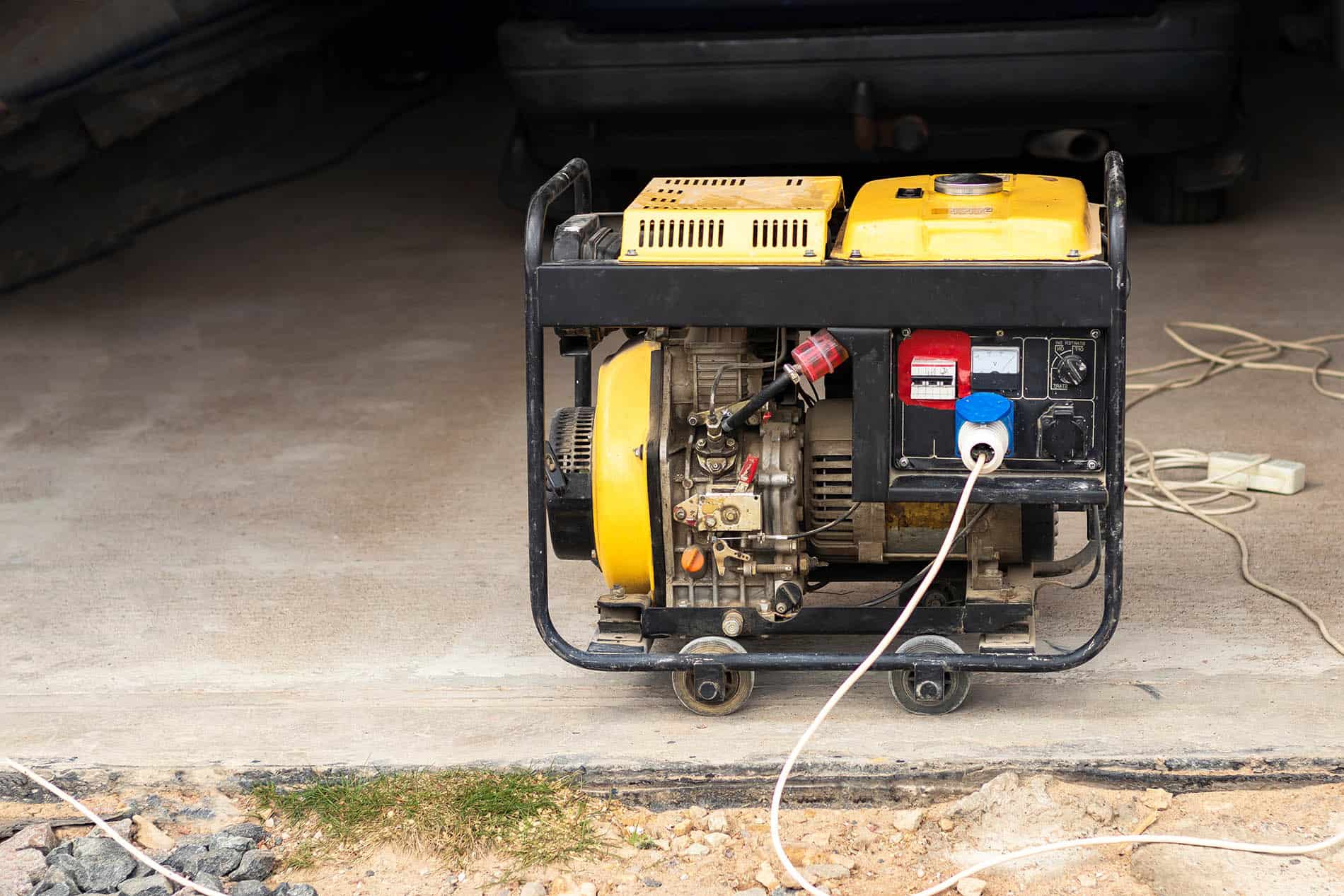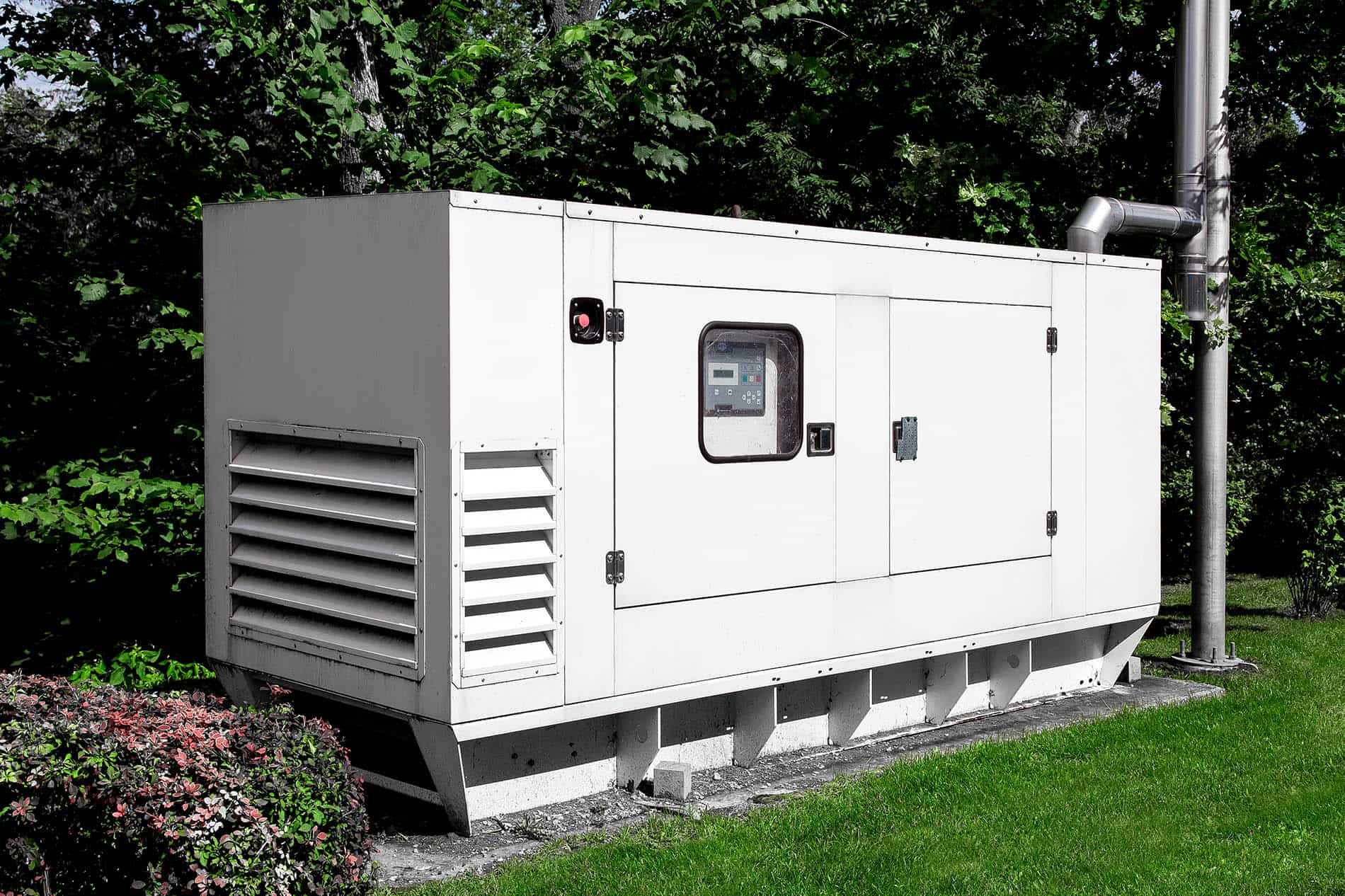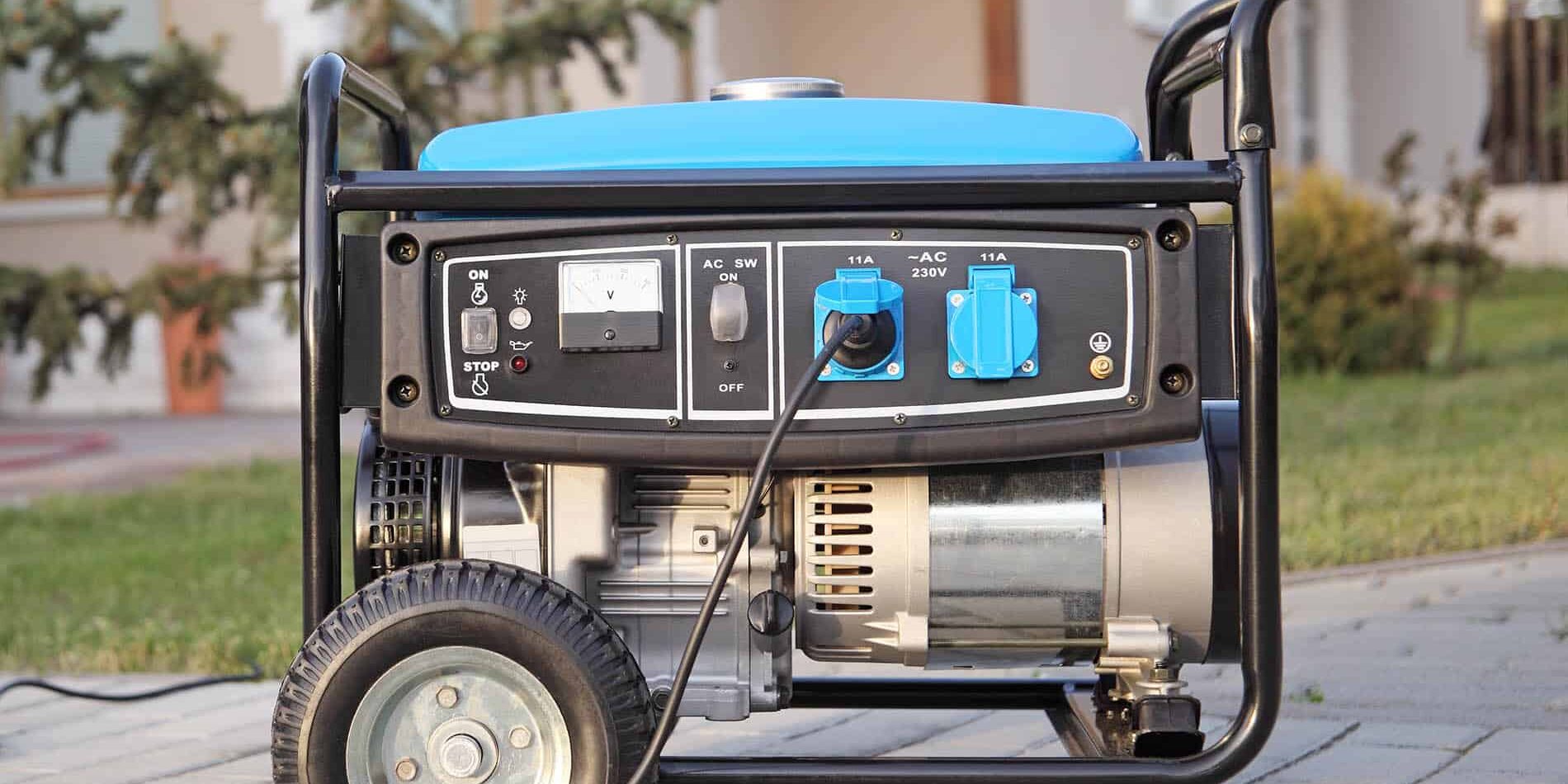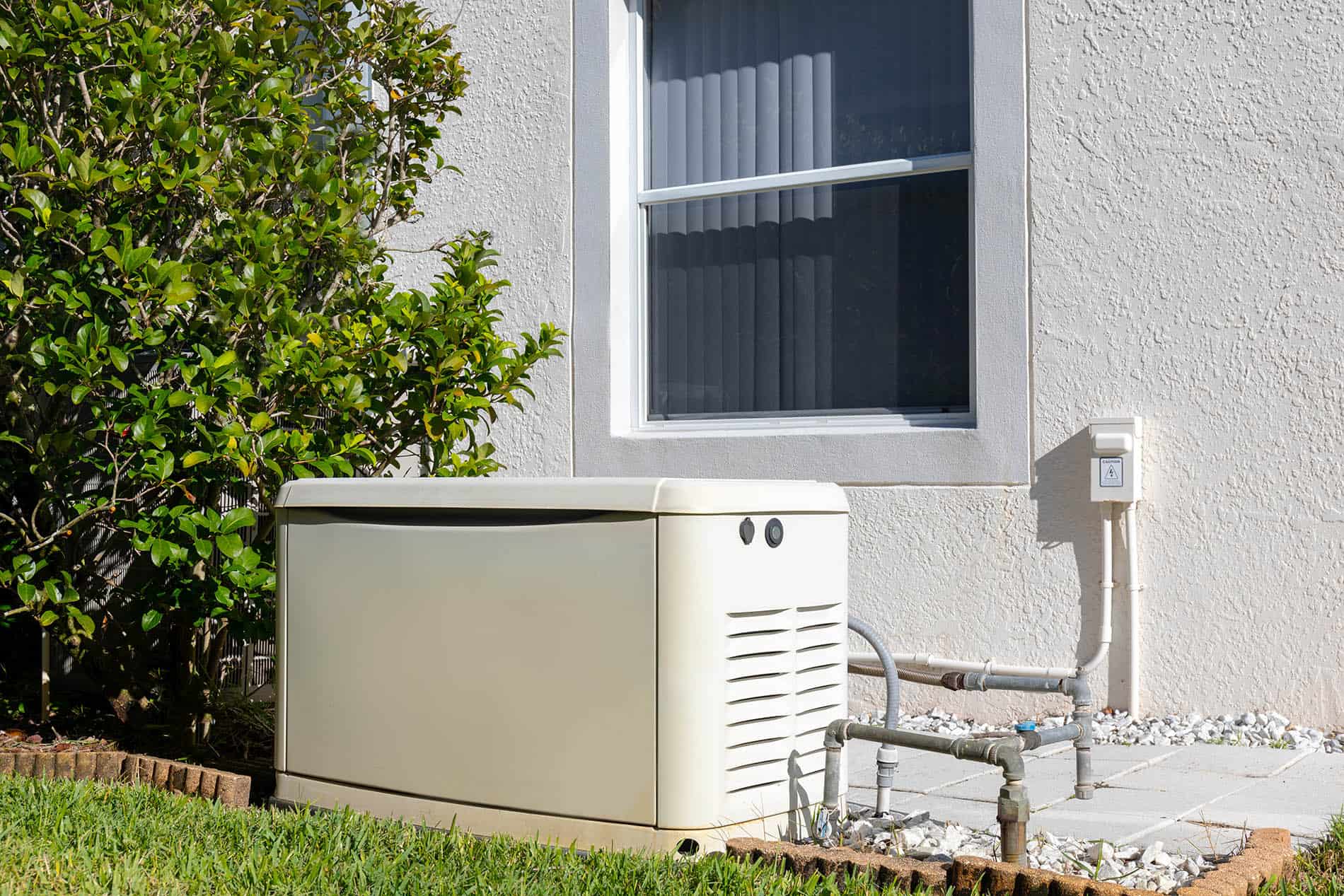When a storm hits or the power goes out in Connecticut, homeowners ask: how much does a backup generator cost? Whether you’re researching the cost of a backup generator for your home or trying to estimate the cost of a backup generator, you need to know all the components. Here’s a guide to help you plan.
Portable vs. Standby Generator Costs:
Portable Generators
These are gasoline or propane powered, manually started, and used for essentials, like a refrigerator, a few lights, or a sump pump. The backup generator cost is lower upfront, and no permits or professional installation are required. But you’ll need to refuel and hook up during outages.

Standby (Whole‑Home) Generators
These are installed outside the home, connected to a transfer switch, and powered by natural gas, propane, or diesel. They turn on automatically when the power goes out. Although the home backup generator cost is higher, they’re seamless and can power the entire home during long outages.

What Affects the Cost of Backup Generators?
8 Factors to Consider:
- Generator Size (Wattage):
Smaller generators (7–10 kW) can power a few essentials, while larger whole-home systems (13–22+ kW) can run HVAC systems, kitchen appliances, home offices and more. Larger systems mean a higher backup generator cost, not only for the unit itself but also for installation and fuel. - Fuel Type & Hook-Up:
Standby generators run on natural gas or propane. If you already have a natural gas line, installation is easier. If not, installing a propane tank or running a new gas line adds to the cost. Diesel units are less common but are used in rural areas or for commercial-grade backup. - Installation Complexity & Labor:
Trenching for gas lines, creating a concrete pad, upgrading the electrical panel, or limited property access adds to labor costs. Labor rates in Connecticut, especially in Fairfield and Westchester counties, are higher than the national average, which affects overall installation pricing. - Permits & Inspections:
Local towns require permits for standby generator installations, and these need to be factored into your budget. Permit costs in Connecticut towns range from $50 to several hundred dollars, depending on the project. - Automatic Transfer Switch:
This allows the generator to switch your home over from utility to generator power automatically. It’s required for whole-home systems and varies in cost depending on amperage and features. - Concrete Pad:
Most standby generators require a base, either a precast or poured concrete pad, to sit on, which adds a small cost. - Fuel Storage:
Homes without natural gas need a propane tank, which includes purchase or rental, installation, and space considerations. - Maintenance:
Generators require regular maintenance including, oil changes, filter replacements, and periodic inspections. Maintenance costs are billed annually and vary based on unit size and usage.
Operating and Maintenance Costs
Operating costs vary based on fuel type and generator size. Standby systems can cost anywhere from a few dollars an hour to operate, depending on load and fuel rates. Maintenance costs are usually a few hundred dollars a year. Not maintaining your generator can shorten the life of the unit and may void manufacturer warranties.
Why Connecticut Homeowners Invest in Backup Power
Power outages are becoming more frequent due to storms, extreme weather, and utility disruptions. A backup generator ensures your heating, cooling, refrigeration, communication, and medical equipment stays operational no matter what’s going on outside. For homeowners who work from home or have children or elderly relatives at home, power stability isn’t optional, it’s essential.
In many cases, a well-installed generator can also increase your home’s value and appeal to buyers.
So, How Much Does a Backup Generator Cost?
For the unit alone, whole-house backup generators can cost anywhere from $5,000 – $12,000 while portable backup generators are typically more affordable $500 – $2,500. However, installation and related factors can significantly impact the overall range of cost. Ultimately, your backup generator costs will depend on:
- Type (portable vs. standby)
- Generator size (based on your energy needs)
- Fuel availability and hookups
- Electrical system compatibility
- Labor, permits, and location-specific factors
That’s why it’s always best to skip the generic online estimates and request a local, customized quote from a professional who knows Connecticut homes.
Why Choose HomeSquarePro?
At HomeSquarePro, we help homeowners in Fairfield, Putnam, and Westchester counties plan and install reliable, code-compliant backup power systems. Our services include:
- Professional generator sizing and recommendations
- Complete installation, including pads, gas lines, and wiring
- Permit coordination and final inspection
- Annual maintenance plans to keep your system running all year
We remove the mystery from the backup generator for home cost, and give you confidence that your system will work when you need it.
Ready to get a generator? Contact us and we’ll walk your property, assess your needs, and give you a quote. No hassle. No hidden costs. Just local expertise.







